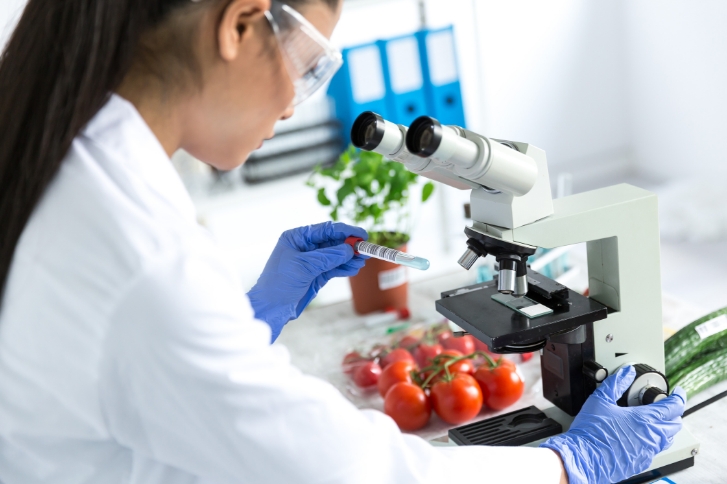We are presented with an important opportunity at this juncture in humanity’s history. The world’s population has doubled over the last 50 years. That’s a lot of people to feed. This is an impending problem for everyone sharing the planet as the world’s resources are dwindling. But there is always hope.
Today, food technologists are finding innovative answers to the looming food shortage—ways to eliminate waste and get the most mileage from available resources. A circular economy is necessary to prevent waste. We could use new technologies for food production and incorporate new ingredients such as microalgae, insects, and wood-derived fibres.
The move to fake meats
Veganism is a movement that is not only trendy with flat-bellied yoga fanatics on Instagram, it seems to be gaining prominence with more mainstream parts of society, too. Even Domino’s has its vegan Impossible Pizza range, fake meat, and more meat alternatives keep popping up in supermarkets. People are ‘going vegan’ not just for ethical reasons but due to the movement’s purported health benefits, most notably outlined in The China Study by T. Colin Campbell and Thomas M. Campbell.
Veganism has been reported to have performance-enhancing effects, as documented in The Game Changers. Other popular vegan documentaries, such as Forks Over Knives, Cowspiracy, and Food, Inc., cover the health benefits of veganism and the link between meat consumption and environmental degradation.
But despite the popularity of veganism, must we really eliminate all meat and dairy products from our diets? There are other approaches to well-being that take a more moderate approach, such as the Mediterranean Diet. Culturally, meat and dairy play a major role in our Western cuisine, and are important sources of protein in a balanced diet. But with recent interest in meat and dairy alternatives, the meat and dairy industries now have a huge potential to grab that market share with the development of new state-of-the-art products. With every trend, there is the chance to make a profit, moving into new spaces with new customers.
Is cellular agriculture our saviour?
One of our objectives in the face of a looming food crisis is to produce more food. But how does one do that when our resources are limited? Cellular agriculture may have an answer for us. Food scientists can conduct cellular agriculture via tissue engineering or fermentation. Cells are collected from living animals from mechanical and enzymatic processes in the engineering technique. These cells then produce muscles that can be eaten as a food source.
In the fermentation technique, molecules are made from genetically modified bacteria, algae, or yeasts, which means that process can occur without the help of animal cells. Solein, a single-cell pure protein, is produced by The Solar Foods company using this fermentation process. Cultured meat presents many advantages over traditional meat, such as:
- Less reliance on livestock products
- Offers more nutritional options for people
- Allows for higher quality control of the products
- Reduces environmental impacts and transport costs
Cultured meat is an emerging area in food science, but it does offer sufficient benefits to warrant further investigation by innovative new food technology companies.
New food ingredients
Some people may squirm at the thought of eating insects, but they may provide nutrients such as proteins, fat, fibre, vitamins, and minerals. Specific segments of the population in Africa, Central and South America, and Asia already use insects as a part of their diets. But it is important to note cultural sensitivities relating to diet. Only some cultures are comfortable with eating insects. In others, it is not a traditional custom.
This point highlights how the food scarcity problem is multidimensional. We must address it on the levels of palatability and psychology, not just practicality. Algae and microalgae are used as food in various Asian cuisines. Spirulina and Chlorella have been embraced by Western countries as food healthy food additives that are rich in minerals and vitamins. Wood-derived fibres may offer a different way to add fibre into the diet, with substances made more palatable through the work of food technologists.
National Food Institute – the best in food processing training for your staff
No matter what challenges you face in your food processing organisation, the best investment you can make is in training your staff members. A well-trained team can boost the quality of your output and your efficiency.
Contact us at National Food Institute to find out more.

